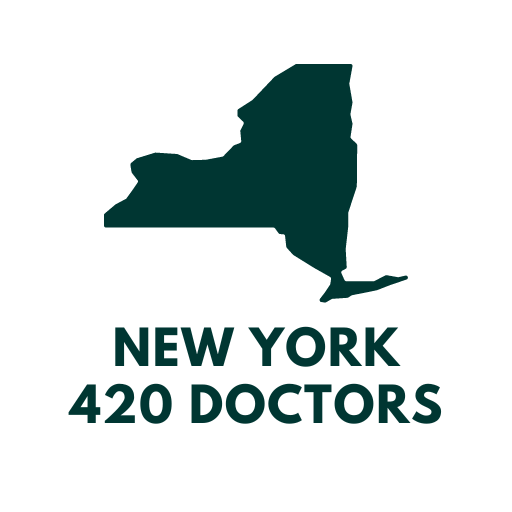As medical marijuana becomes more widely accepted and legalized across states like New York, questions arise about how it affects professionals, particularly those in healthcare. While doctors and healthcare workers play a key role in the certification and recommendation of medical cannabis to patients, they may wonder whether having a New York Medical Marijuana Card (NY MMJ Card) themselves could impact their career or professional standing.
This article will explore whether a doctor can hold a Medical Marijuana Card in New York, considering legal, professional, and workplace implications, particularly in relation to federal and state laws.
Legal Landscape: Federal vs. State Law
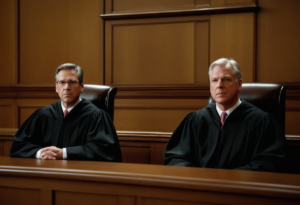
New York has a well-established medical marijuana program that allows residents with qualifying medical conditions to obtain medical cannabis legally. The Marijuana Regulation and Taxation Act (MRTA), passed in 2021, expanded access to medical cannabis, including reducing the costs of obtaining a medical marijuana card and increasing the list of qualifying conditions. As such, doctors in New York are responsible for certifying patients for medical marijuana use if they meet specific criteria.
While the state law in New York permits the use of medical cannabis, it is important to remember that federal law still classifies marijuana as a Schedule I substance under the Controlled Substances Act. This classification means that marijuana, including medical marijuana, remains illegal at the federal level and is viewed as having no accepted medical use and a high potential for abuse.
For healthcare professionals, especially those working in federally regulated environments such as Veterans Affairs (VA) hospitals or any federal healthcare program, the use of medical marijuana—even if permitted by state law—could potentially jeopardize their employment or ability to work in certain settings.
DEA Licensing and Medical Marijuana Use
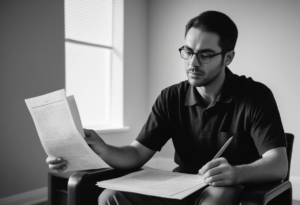
One of the key considerations for doctors when using medical marijuana is the potential impact on their Drug Enforcement Administration (DEA) license. A DEA license allows doctors to prescribe controlled substances such as opioids, benzodiazepines, and other medications classified under the Controlled Substances Act.
Since marijuana is illegal at the federal level, there is a concern that any doctor who uses medical marijuana—even under state law—could face challenges when applying for or renewing their DEA license. Although the DEA has not explicitly stated that holding a medical marijuana card would disqualify a physician from obtaining a license, using or being associated with marijuana could trigger scrutiny and raise concerns about compliance with federal law.
Doctors working in states like New York that have legalized medical marijuana need to be aware of the potential risks to their DEA license and ensure that their use of medical cannabis is compliant with both state and federal regulations.
Workplace Policies and Drug Testing
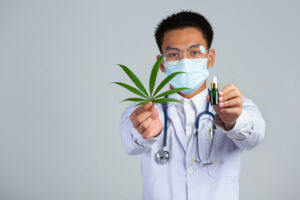
Although New York has legalized medical marijuana and provides protections for cardholders, workplace policies often vary, especially for healthcare professionals. Hospitals, clinics, and other healthcare settings may have specific rules regarding drug use, even when it is for medical purposes. This is especially important for roles that involve direct patient care, such as surgeons, emergency room doctors, and anesthesiologists.
Some employers may conduct random drug tests or have zero-tolerance policies in place, which could pose challenges for doctors using medical marijuana. Even though New York State provides protections under its Compassionate Care Act, employers still have the right to enforce drug-free workplace policies, particularly in sensitive environments such as healthcare.
Doctors who use medical marijuana should thoroughly review their employer’s drug policy and understand how it may impact their employment status. In some cases, doctors may need to disclose their use of medical marijuana to avoid any misunderstandings or potential legal issues if they are required to undergo drug testing.
Impact on Professional Licensing

In addition to workplace policies, doctors with a New York Medical Marijuana Card must consider the potential impact on their professional medical license. State medical boards, including the New York State Board for Professional Medical Conduct, are responsible for regulating medical licenses and ensuring that doctors uphold the standards of the profession.
While the use of medical marijuana in New York is legal, doctors are held to high standards of conduct, especially regarding patient care and medical ethics. If a doctor’s use of marijuana affects their ability to perform their duties or impairs their judgment, the medical board has the authority to investigate and take disciplinary action. This could include suspension or revocation of their license in extreme cases.
Doctors who use medical marijuana should be particularly cautious about its impact on their performance in clinical settings. Even if a doctor holds a Medical Marijuana Card NY, the medical board may still take action if the doctor’s use of marijuana leads to impaired decision-making, especially in high-stakes environments like surgery or emergency care.
Professional Reputation and Patient Perception
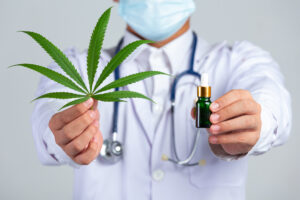
Another factor to consider is the potential impact on a doctor’s professional reputation. Although there is growing acceptance of medical marijuana, there remains some stigma associated with its use, particularly in conservative or traditional healthcare environments.
Doctors who are known to use medical marijuana may face skepticism from colleagues, patients, or even hospital administrators. While this may not result in formal repercussions, it could impact the doctor’s standing within their professional community or lead to concerns about their fitness to practice. In some cases, doctors may choose to limit the disclosure of their medical marijuana use to avoid unnecessary attention or prejudice.
Medical Marijuana as a Treatment for Doctors

Interestingly, doctors themselves may seek medical marijuana for many of the same conditions they treat in patients, such as chronic pain, anxiety, or insomnia. In New York, doctors are eligible for a medical marijuana card if they have a qualifying condition and are certified by a fellow licensed healthcare professional.
Some doctors, particularly those who advocate for medical marijuana use, may even view their own use as part of their professional expertise, providing them with a unique perspective on the benefits and challenges of cannabis therapy. However, they must balance this with their professional obligations and ensure that their marijuana use does not interfere with their ability to provide safe and effective care to patients.
Conclusion
Doctors in New York can hold a Medical Marijuana Card, but there are important considerations. While state law allows it, federal regulations still prohibit cannabis use, which can affect those working in federally regulated environments or with DEA licenses. Doctors must also consider workplace drug policies and the potential impact on their medical license if their cannabis use affects their performance. Transparency with employers and adherence to regulations are crucial to balancing medical marijuana use with professional responsibilities.

